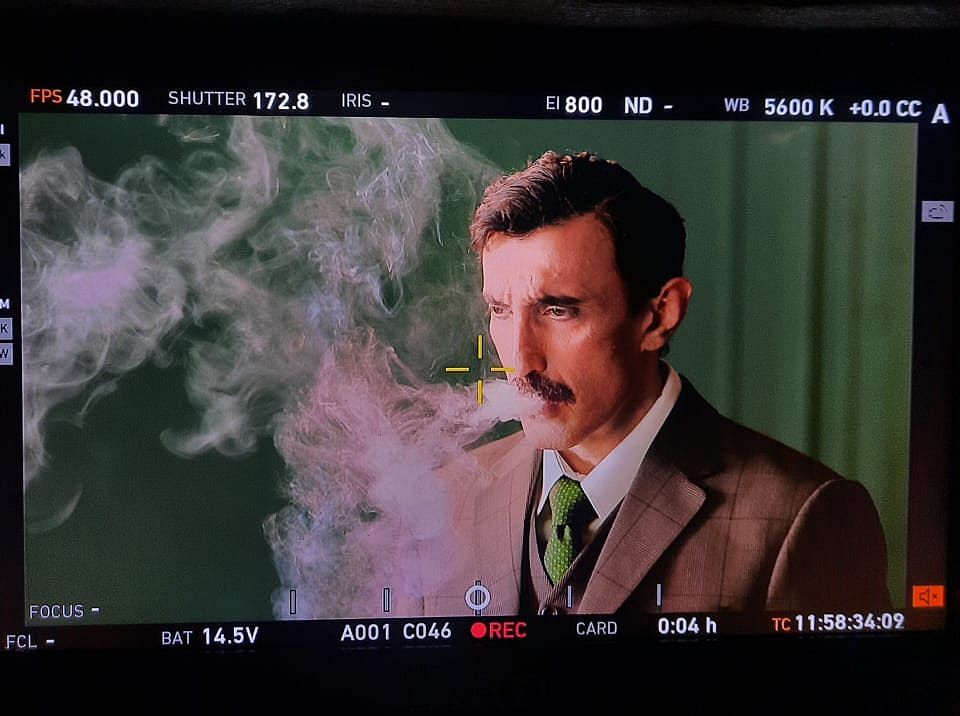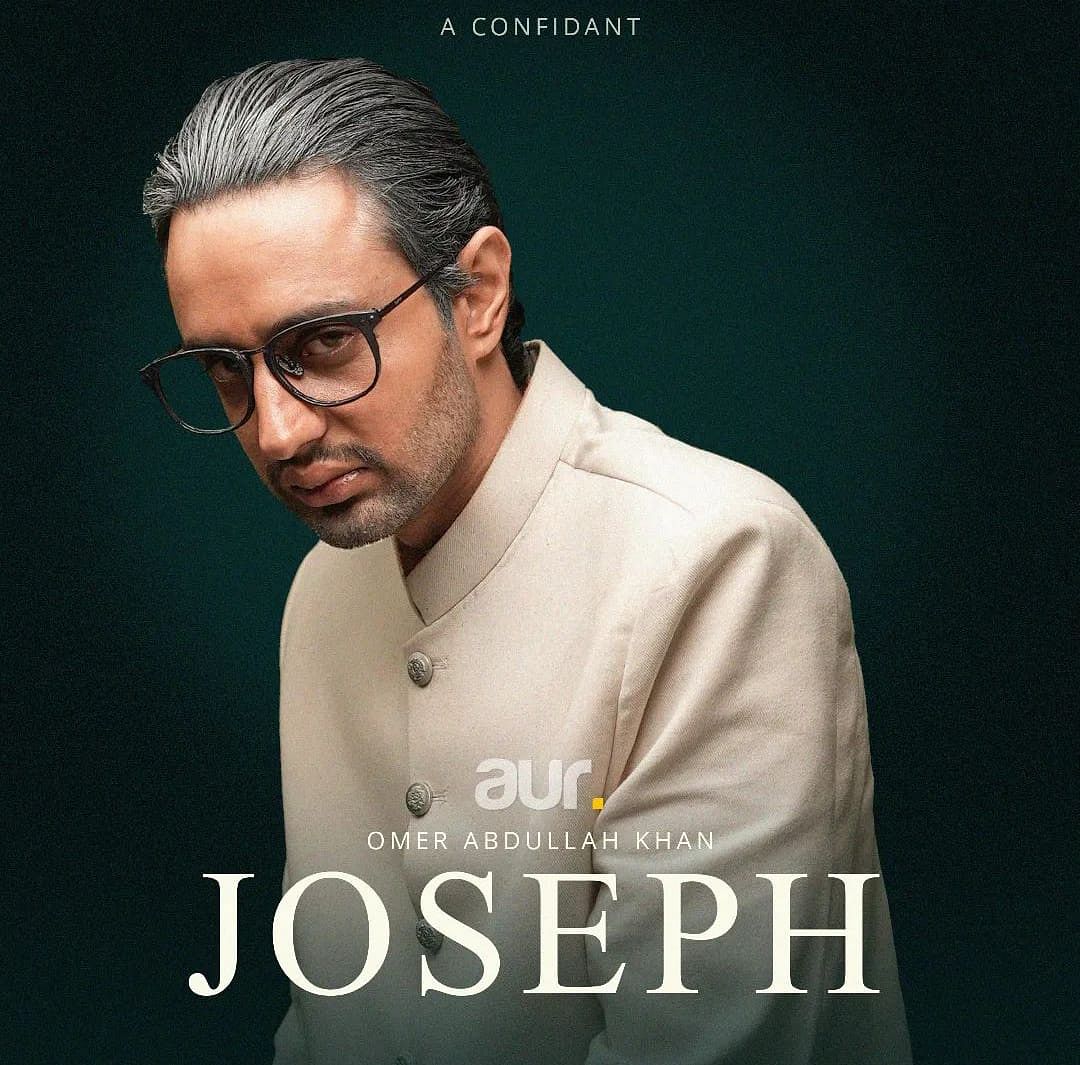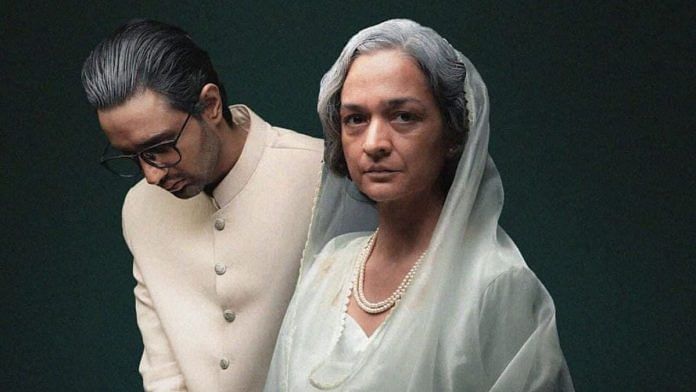New Delhi: Fatima Jinnah, the Pakistani politician and Mohammed Ali Jinnah’s sister, had a Christian-Kashmiri friend, Joseph Messih, who even moved with her to Pakistan. Her friendship with this little-known journalist will be explored in director Danial K Afzal’s highly anticipated series about Fatima — Madr-e-Millat, Mother of the Nation.
Though the series is scheduled to be aired only next July, the director is set to drop the original soundtrack for the first season on 14 August to coincide with Pakistan’s Independence Day celebrations.
The first season will focus on Fatima’s early years in pre-Partition Bombay, her relationship with her brother Muhammad Ali Jinnah and Joseph as well as the role she and other women played in redefining empowerment in those tumultuous years, Afzal told ThePrint.

Partition and its impact on the subcontinent will be seen and told through the eyes of Fatima Jinnah. “And characters of people like Joseph are important because historically, their narratives have mostly been erased,” said Afzal.
Fatima Jinnah will be played by three different actors, one each season. So far two have been announced — Sundas Farhan and Samiya Mumtaz.
The search for Joseph
Afzal had to scour through archives and records to flesh out the character of Joseph who is played by Pakistani actor and activist Omer Abdullah Khan. But his main source of information was M Reza Pirbhai’s book, Fatima Jinnah: Mother of the Nation.
A few articles, according to Afzal, talk about a Christian Kashmiri man who in the 1910s was her right-hand man. A journalist for the Bombay Chronicle, Joseph had written quite a few seditious pieces against the British government on Swaraj and the right to self-determination. He was picked up and tortured under the Rowlatt Act (1919). It was Fatima Jinnah who pulled all the strings to get him out.

Abdullah sees Joseph as a sensitive, youthful, idealist from Srinagar, trying to find his place in Bombay. “He personifies the general spirit of liberation and defiance against the firangi sarkar,” said Abdullah.
And though historical records don’t mention him in detail, he had a decisive role to play in Fatima’s life.
“It was a platonic camaraderie that she shared with this young guy from Srinagar who became the only person she could trust and who followed her to Pakistan, being with her till his last breath,” said Afzal.
Fatima Jinnah died in Karachi on 9 July 1967.
“I purposely wanted a character there that would talk of Kashmiris and their emancipation and luckily Fatima Jinnah had that kind of a person in her life as well. Joseph is an important character in my story,” said Afzal.
In an earlier post made on social media, Abdullah, a Kashmiri himself, had written about how he does not agree with the politics of the Jinnah family or “the idea of Partition of the subcontinent on the lines of religion” but as an actor “you have to displace your own ego, ideology and politics with that of the character” so it was also a test for him on personal levels.
“One can find glimpses of revolutionaries like Bhagat Singh, Sukhdev, Rajguru and countless other martyrs who gave their blood to break the shackles of colonial slavery in Joseph’s character,” Abdullah added.
Pre-Partition Bombay in Lahore
Fatima Jinnah’s story will be told in three parts: in her 30s before Partition, in her 50s during Independence, and in her 70s in Pakistan.
With a small team of university students as his crew, Afzal recreated pre-Partition Bombay in Lahore and Islamabad with the help of his Indian friends.

A 14-minute prologue was released last year on 14 August. The first season is slated to be launched on 31 July 2024 to mark Fatima Jinnah’s birth anniversary.
For Afzal, what intrigued him was how Fatima Jinnah left everything behind to be with her brother, Muhammad Ali Jinnah, and the rich history of women empowerment in South Asia— something that is rarely explored.
As the first female dentist in undivided India, as well as a close associate and counsellor to her older brother Fatima Jinnah eventually became Pakistan’s first Governor General.
Her book, My Brother written in 1955 was not published until 1987, 32 years later, due to censorship by the authorities, which accused Fatima of ‘anti-nationalist material’. Several pages from the manuscript were said to have been left out.
Afzal is disillusioned with the politics of corruption and greed that plagues both Pakistan and India now.
“Earlier leaders like Jinnah, Tilak, and Gandhi were political leaders who were educated, of sound thought and who wouldn’t be immoral to other leaders. But nowadays, politicians in both countries are morally corrupt with no sense of well-being either for themselves or for the community,” he said.
And in a way, the series is also a nod to the freedom fighters and post-independence leaders of both countries.
“I wanted to create a series where I tell South Asia that we came out of people who are actually very sound and morally sane and those are the leaders we should look up to.”
(Edited by Theres Sudeep)



